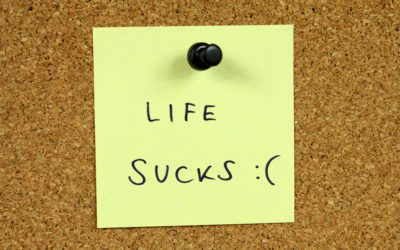Since stumbling across the inside-out understanding and beginning to work as a transformative coach, I’ve come to see that lasting change seems to always involve a transformation in three fundamental “relationships”…
1. Your relationship with thought and thinking
There is an oft-quoted bit of research that shows human beings think around fifty thousand thoughts a day. While I have always wondered how that number is measured, the most plausible answer I’ve found so far comes from the laboratory of neuro-imaging at the University of Southern California:
There is no generally accepted definition of what “thought” is or how it is created. In our study, we… assumed that a “thought” is a sporadic single-idea cognitive concept resulting from the act of thinking, or produced by spontaneous systems-level cognitive brain activations.
In other words, “a thought” is the observable fruit of an invisible but constant source. A simpler way of thinking about it is that Thought is a catch-all word for mental activity (“thinking”), which can be further broken down into separate units we call “thoughts”.
While too much thinking about thinking can drive you a bit crazy, a little clarity goes a long way. And when you wake up to the fact that you live in a constant swirl of mental activity, the ever-changing nature of your personal reality becomes a bit less mysterious and even potentially advantageous.
Take, for instance, the current political election. (I am confident that whatever month and year you are reading this, the following example will be relevant.) How is it possible that any intelligent person can disagree with your views? How could anyone in their right mind vote for him, her, or it when he/she/it is so clearly dangerous/misguided/wrong?
The truth is, we live in thought-created realities – what the philosopher Robert Anton Wilson referred to as “reality tunnels”. Therefore within our own frame of reference – the way the world occurs to us – our behavior makes complete sense. Viewed from outside of our own reality tunnel, however, our behavior can seem erratic, ignorant, curious, or completely arbitrary.
This is why all lasting change involves either a fundamental shift in how things occur to us (i.e. the content of our thinking) or in our relationship with Thought – our awareness of the fact that by nature of how the mind works, we cannot know absolute reality and therefore are inclined to take our own point of view on things less seriously.
How is that advantageous?
Well, first off it means we get less dragged around by the nose by our own thinking. Instead of reacting to every thought that passes through our head (and every person who disagrees with it), we are able to take our insecure thoughts in stride and allow a wider perspective and deeper wisdom (see point three) to emerge.
Secondly, it allows for the possibility of true innovation – seeing a new world instead of continually trying to make the best of the old one. How things occur to us seems to change most rapidly when we are awake to the fact that there is already a way things occur to us – and a whole new world of creativity, ease, and freedom is never more than one new thought away.
2. Your relationship with fear and discouragement
I was speaking with a colleague recently who pointed out that persistence and resilience were the two most highly leveraged traits leading to success in the world. As Sir Winston Churchill is reputed to have said, “Success is the ability to move from one failure to another without loss of enthusiasm.”
What the inside-out understanding leads to is a natural confidence, persistence, and resilience that emerge from underneath the noise of our habitual inclination to hold ourselves back in order to avoid experiencing fear or discouragement. Here’s how I’ve written about it elsewhere:
Because we think that our fear is causally linked to certain specific life circumstances, we do everything we can to avoid and/or protect ourselves from those circumstances
Because we think our happiness will come from getting what we want, we pursue success at all costs. If we don’t get what we want, we feel discouraged and lose heart. But that feeling of discouragement has nothing to do with the results we are creating.
The moment we see the truth behind the thought/feeling system — that every feeling is just the shadow of a thought, and thoughts come and go when we let them — we stop being scared of our feelings and just feel them.
And when we don’t stop ourselves, it’s amazing what we can create and achieve along the way.
3. Your relationship with your own wisdom, common sense, and guidance
Beyond my relationship with my family, the relationship I am most grateful for in my life is with what I’ve come to think of as my “knowing”. This is not a capacity which is in any way unique to me – in fact, it seems to come from a deeper part of the mind which is both universal and impersonal.
As the theosopher Syd Banks describes it:
The personal mind is in a perpetual state of change.
All humans have the inner ability to synchronize their personal mind with their impersonal mind to bring harmony into their lives…
An important thing to realize is that Universal Mind and personal mind are not two minds thinking differently, but two ways of using the same mind…
There is one Universal Mind, common to all, and wherever you are, it is with you, always.
There is no end or limitation, nor are there boundaries, to the human mind.
If you’re wondering how to transform your relationship with your inner knowing, the answer is kind of in the question – get quiet, let your personal thinking flow through, and listen. The wisdom that you seek will guide you in experiencing itself more deeply…
Have fun, learn heaps, and happy exploring!
With all my love,
![]()





